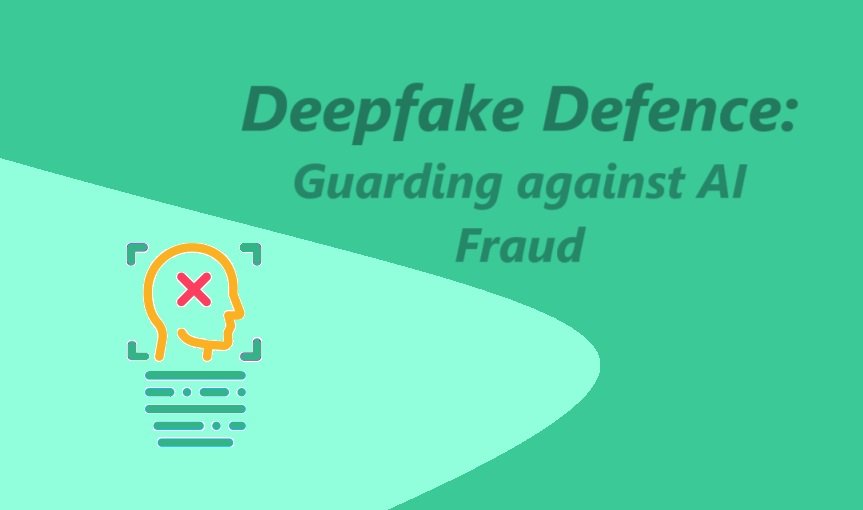Deepfake Defence: Guarding against AI Fraud
What is AI Deep Fake Fraud?
AI Deep Fake Fraud refers to the use of artificial intelligence (AI) technology to create manipulated media content that appears to be real but is actually fake. Deepfake technology uses machine learning algorithms to create highly convincing audio, video, or text content that can deceive individuals and manipulate public perception.
Types of Deepfake fraud:
1. Voice-based Deepfake Fraud:
Voice-based deepfake fraud involves the manipulation of audio recordings to create fake voices that mimic real individuals. These manipulated voices can be used to deceive individuals into believing that they are interacting with a genuine person.
2. Text-based Deepfake Fraud:
Text-based deepfake fraud involves the generation of fake text content, such as articles, social media posts, or emails, that appear to be written by a real person. This type of fraud can be used for various purposes, including spreading misinformation or conducting phishing attacks.
3. Video-based Deepfake Fraud:
Video-based deepfake fraud is perhaps the most well-known type of deepfake fraud. It involves the creation of manipulated videos that make it seem like someone is saying or doing something they never actually did. These videos can be used to spread false information, defame individuals, or manipulate public opinion.
4. Real-Time/Live Deepfake Fraud:
Real-time/live deepfake fraud refers to the use of deepfake technology to create live, interactive experiences that deceive individuals in real-time. For example, a fraudster could use a deepfake voice to impersonate a customer service representative during a phone call or use a deepfake video to create a fake live stream.
Deepfake Fraud in Finance and Banking:
Deepfake fraud poses significant risks in the finance and banking sector. Fraudsters can use deepfake technology to impersonate bank employees, create fake financial statements, or manipulate stock prices. This can lead to financial losses for individuals and businesses, as well as damage to the reputation of financial institutions.
Financial institutions must implement robust security measures to detect and prevent deepfake fraud. This includes enhancing authentication processes, implementing advanced fraud detection algorithms, and educating customers about the risks of deepfake fraud.
Additionally, regulators and policymakers need to collaborate with technology experts to develop frameworks and regulations that address the challenges posed by deepfake fraud in the finance and banking industry.
Tips to Protect Yourself:
- Always confirm the identity of people online, especially if they request sensitive information or actions. If someone claims to be a friend or family member, ask them a personal question only they would know to confirm their identity.
- Report any suspicious calls to the police or at https://cybercrime.gov.in/.
- If you suspect a call might be a deep fake or fraudulent, it’s best to end the call and report and block that number immediately.
- Do not give out personal information or money to people that you do not know or trust.
- Keep software updated: Regularly update your devices and software to ensure you have the latest security patches and protections against deepfake threats.
- Educate yourself: Stay informed about the latest deepfake techniques and trends. By understanding how deepfake fraud works, you can better recognize and protect yourself against potential scams.
- Use strong and unique passwords: Protect your online accounts by using strong, unique passwords and enabling two-factor authentication whenever possible. This can help prevent unauthorized access to your personal information.
- Verify the source: Before trusting any media content, verify its source and authenticity. Look for signs of manipulation, such as inconsistencies in voice, video quality, or writing style.
By staying vigilant, adopting best practices, and leveraging advanced technologies, individuals and organizations can better protect themselves against the growing threat of deepfake fraud.




